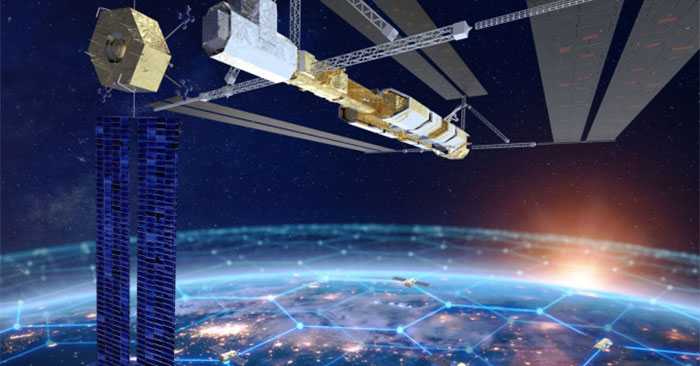Bring data centers to space to save electricity
Researchers believe that deploying data centers in space is a feasible solution in terms of technology, finance and environment.
The Advanced Space Cloud for European Net Zero Emissions and Data Sovereignty (ASCEND) research project has a budget of 2.1 million USD, conducted by the Thales Alenia Space joint venture following a request from European Commission, the executive agency of the European Union (EU).
Damien Dumestier, project manager, said the idea of moving the data center to space is to take advantage of the endless energy source from the Sun, reducing energy needs on the ground.
Data centers require huge amounts of energy and cooling water. According to estimates by the International Energy Organization IEA, the total electricity consumption of global data centers in 2006 could reach 1,000 terawatt-hours, equivalent to the consumption of all of Japan.
Merima Dzanic, head of strategy and operations at the Danish Data Center Industry Association, said a data tsunami could flood the tech industry and require three times the power of traditional facilities. . Therefore, a completely new approach to data center design, construction and operation is needed.

ASCEND researches solutions for deploying data centers in orbit to build a starting point for the commercialization of space cloud services. ASCEND aims to launch 13 data center modules with a total consumption of 10 megawatts to an altitude of 1,400 km above the ground, three times the altitude of the International Space Station (ISS), before 2037.
Each module can handle independent data center services and fits inside a booster rocket, with a surface area of 6,300 m2. ASCEND's goal is to deploy 1,300 modules, reaching a total capacity of one gigawatt, before 2050. This is expected to have a significant impact on energy consumption in the digital sector.
You should read it
- The impressive images of the data center are located at a depth of 35m on the seabed of Microsoft
- Microsoft CEO Satya Nadella will bring the data center to the sea
- For the first time, Vietnam has a data center of international standard
- Where does Google store your YouTube and Gmail videos?
- 7 steps for a green data center
- Inside the data center of Amazon Web Services
 Do not click on strange links or your phone will be hijacked
Do not click on strange links or your phone will be hijacked The electric car model has the fastest speed in the world, with a maximum speed of 438.7 km/h
The electric car model has the fastest speed in the world, with a maximum speed of 438.7 km/h Why don't traffic lights in the US have a second counter?
Why don't traffic lights in the US have a second counter? China has 'weighed' the mass of light
China has 'weighed' the mass of light Quickly fix file system error that cannot open images
Quickly fix file system error that cannot open images Kaspersky Antivirus Banned: Here Are 3 Alternatives!
Kaspersky Antivirus Banned: Here Are 3 Alternatives!